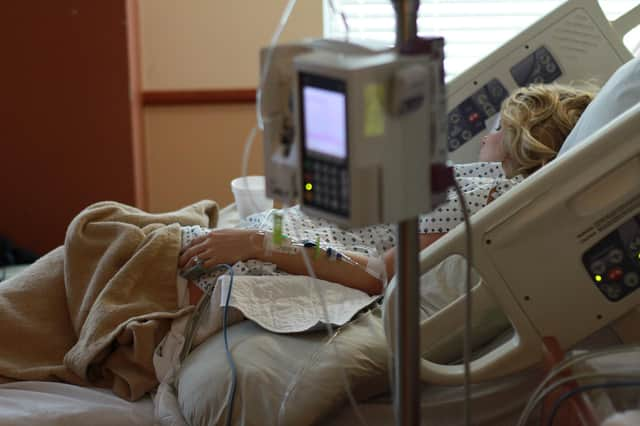Birth trauma support needed ‘as matter of urgency’, warns Scottish Parliament committee


An inquiry led by the Health, Social Care and Sport Committee found there is currently no specific support for those suffering from birth trauma – a term used to describe trauma during or after birth that can include post-traumatic stress disorder.
The committee also heard of a sharp rise in birth trauma during the pandemic, with one woman saying she was told her baby did not have a heartbeat while her partner waited in the car outside.
Advertisement
Hide AdAdvertisement
Hide AdIn its report, released on Tuesday, the committee said it “heard that there are no services that directly address birth trauma.”
One recommendation said: “The committee is concerned about the sharp rise in birth trauma incidences reported during the pandemic and the lack of services that directly address birth trauma as highlighted by NHS Lothian.
“The committee urges the Scottish Government to develop and support birth trauma prevention work as a matter of urgency and to work across all NHS health boards to implement resulting measures.”
The MSPs also described parents who have lost babies having to wait until 2024 for the establishment of specialist baby loss units as “unacceptable”.
“It therefore calls on the Scottish Government to liaise with NHS boards to explore all avenues to enable the timetable for establishment of these units to be accelerated and to provide the committee with further updates on progress,” the report said.
In the meantime, the MSPs urged the Scottish Government to devise “national protocols informed by existing good practice that ensure families affected by baby loss are consistently treated with respect and compassion and in a trauma-informed way” and to do so as an “urgent priority”.
The committee also specified that the protocols to allow for care to be provided for parents who have lost a baby “in a separate area from maternity wards” after one witness described bereaved parents having to “run a gauntlet of balloons, teddies and all these things saying ‘congratulations'”.
“I want to make this really clear: at the moment, parents who go to hospital in the knowledge that they will have a stillbirth or who have to get to hospital because they are going through miscarriage are told beforehand that, when they press the buzzer at the door, they will be greeted by a specialist
Advertisement
Hide AdAdvertisement
Hide Adbereavement midwife,” said Cat Berry, the group facilitator and volunteer co-ordinator at Juno Perinatal Mental Health Support.
“That is not happening. They are actually pressing the buzzer to the maternity ward, and they are then greeted at the door by happy fathers with balloons saying ‘congratulations’ or ‘welcome to the world’.”
Committee convener Gillian Martin said: “Up to 20% of women in Scotland experience negative mental health impacts before, during and after giving birth and the aim of our inquiry was to shine a spotlight on this important issue and to see what more should be done to support these women.”
A message from the Editor:
Thank you for reading this article. We're more reliant on your support than ever as the shift in consumer habits brought about by Coronavirus impacts our advertisers.
If you haven't already, please consider supporting our trusted, fact-checked journalism by taking out a digital subscription.
Comments
Want to join the conversation? Please or to comment on this article.
